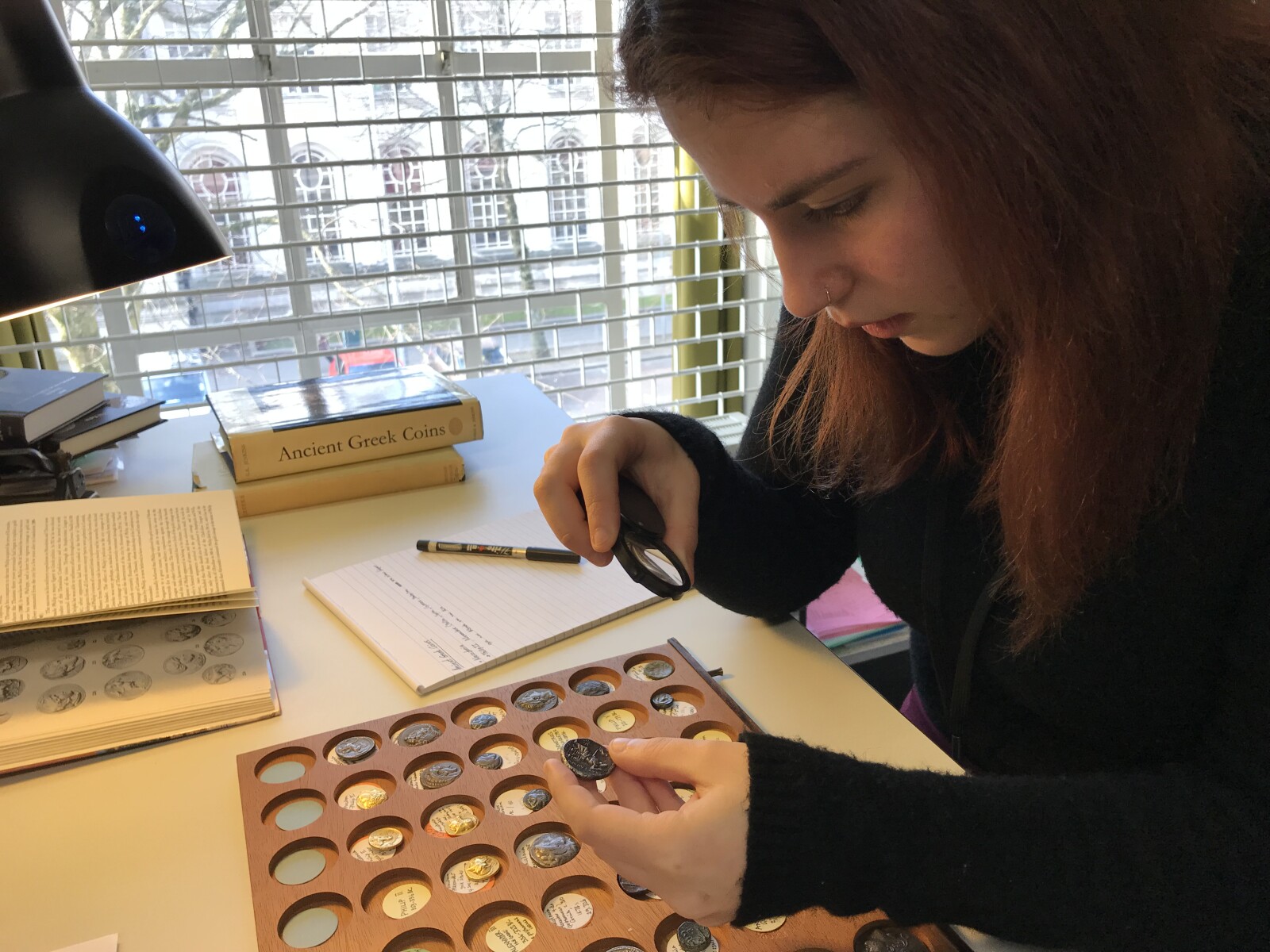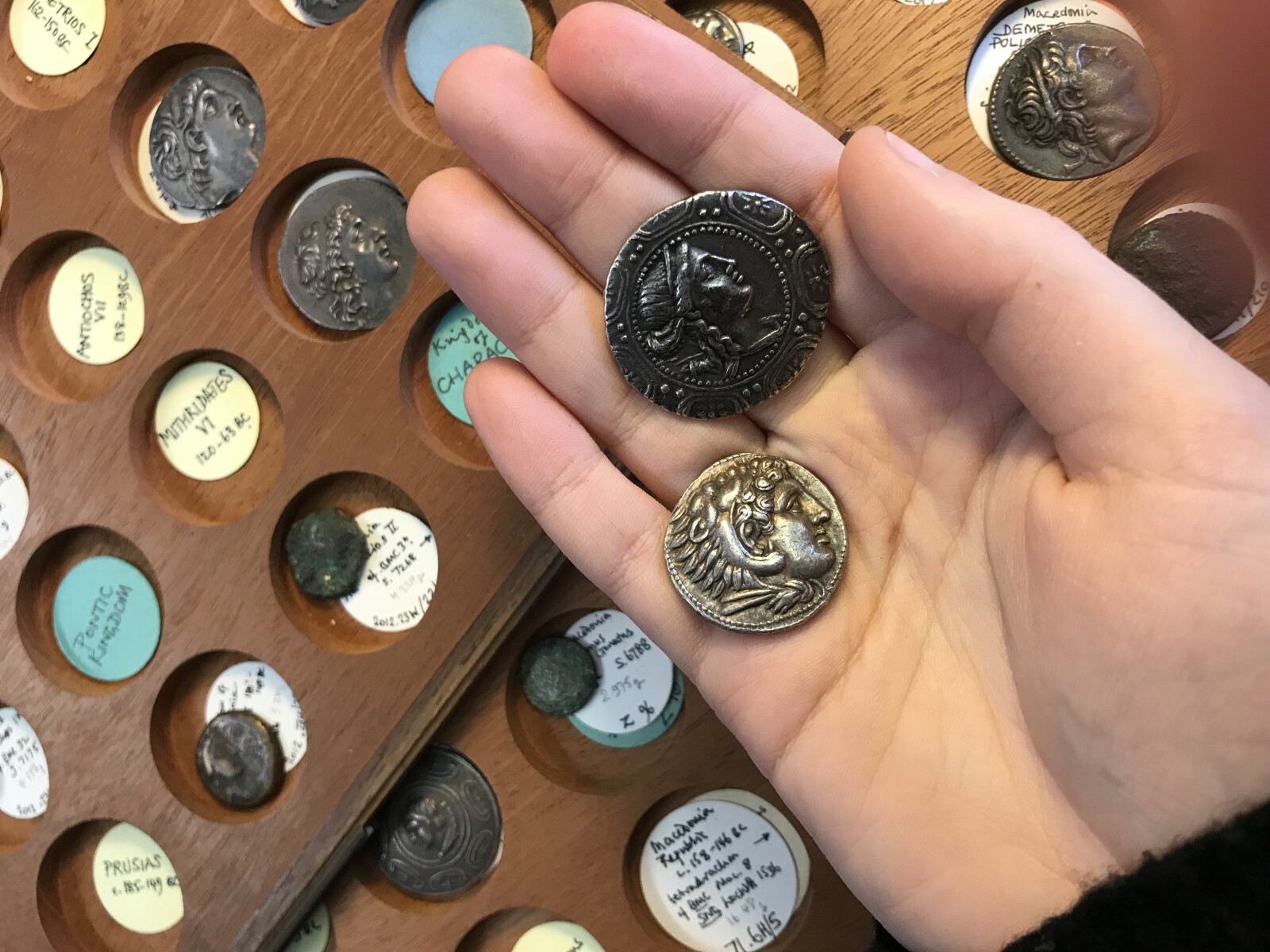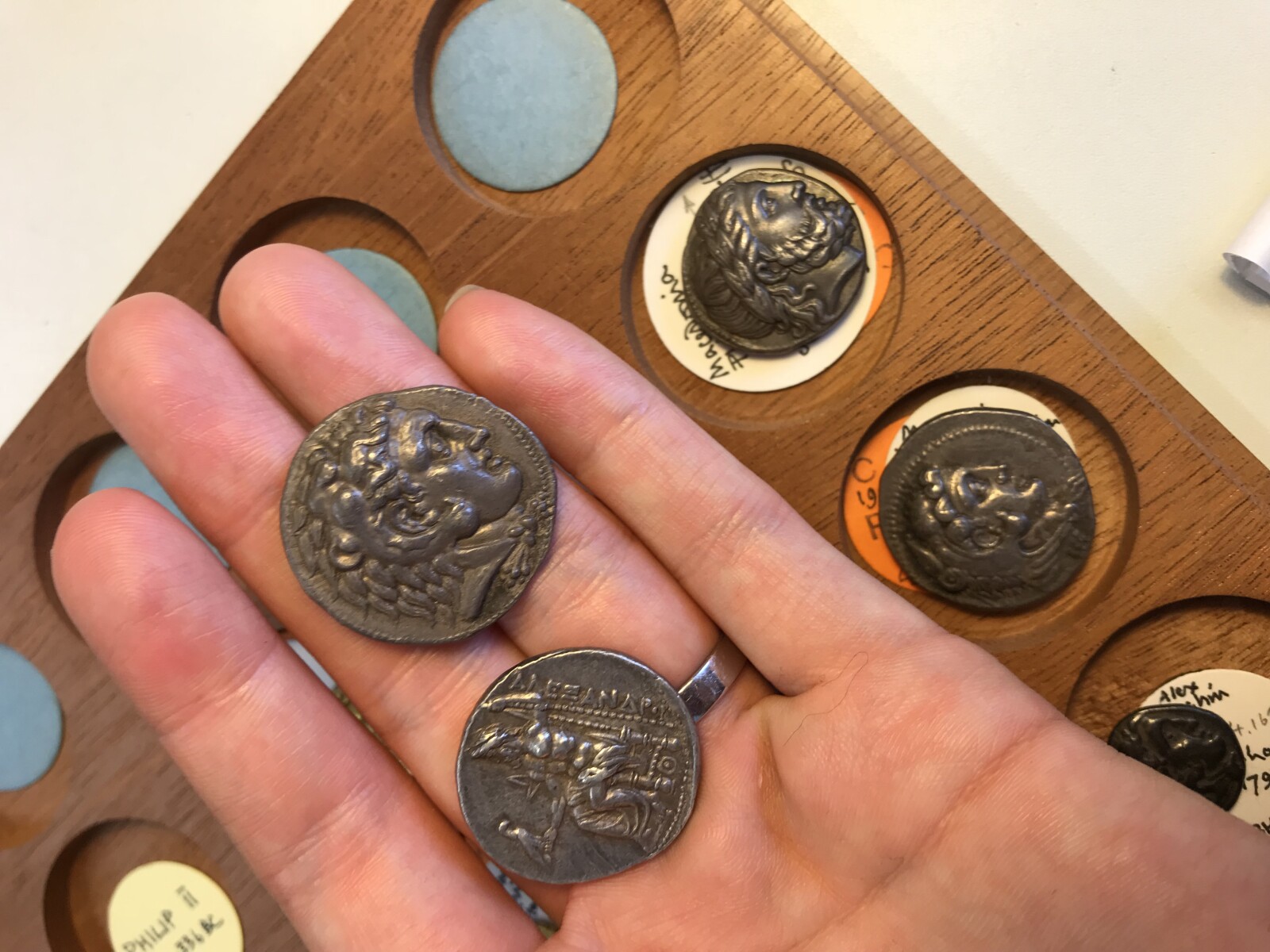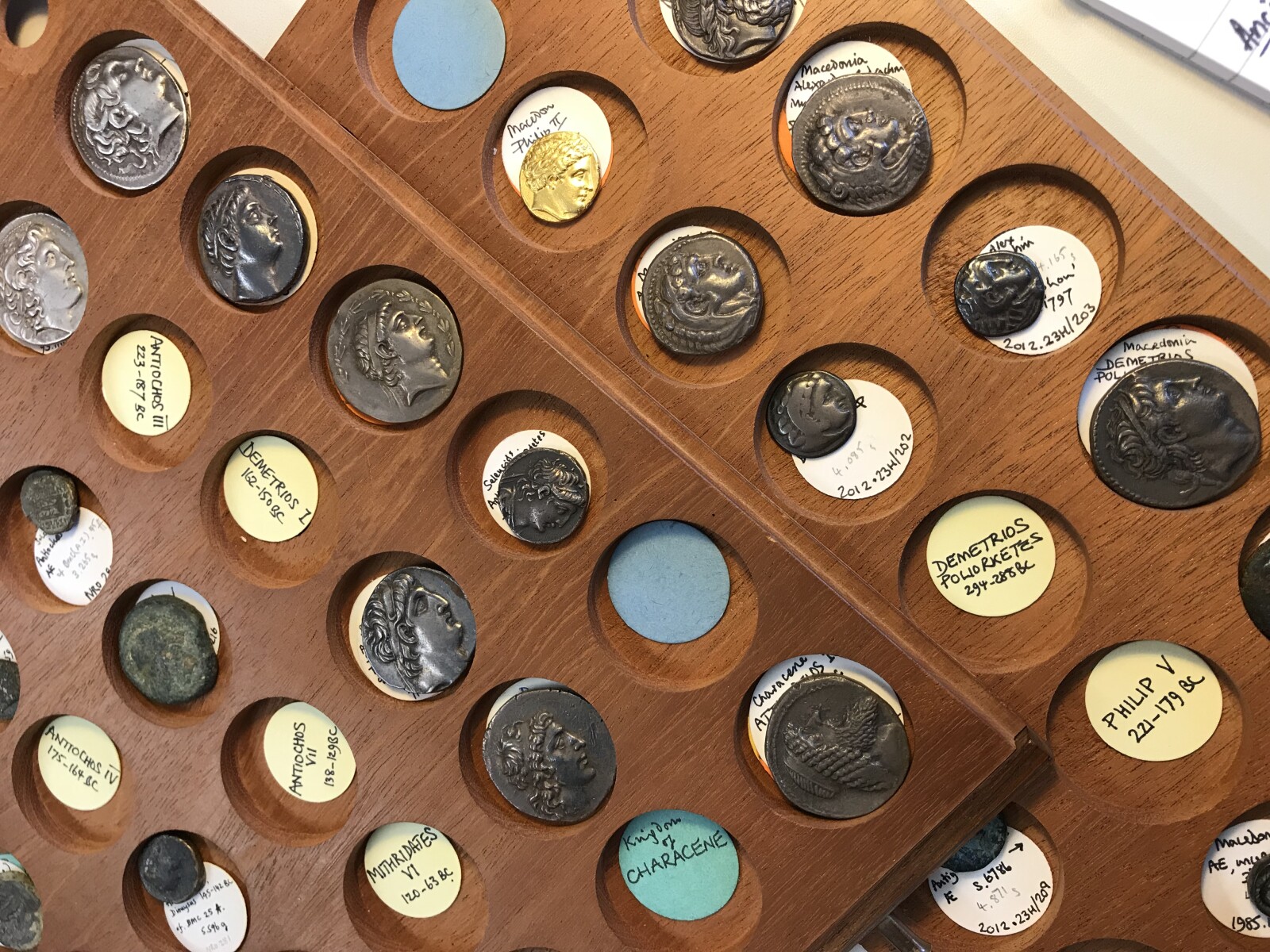Discovering Ancient Greek coins with Eirini
, 16 March 2018
Hi, Eirini here – I am a student intern in the Archaeology and Numismatics department at NMW, Cardiff. I’ve been taking a look at the museum’s extensive coin collection and will be creating a series of blogs on each of them.
Today I am looking at ancient coins from my home country of Greece. The collection of Greek coinage dates back to over 2000 years ago, but the designs are in great condition. They are all made of silver or gold and we can see the development of currency through them – beginning with rough coins that look like ingots to detailed chunky coins featuring Emperors faces, some from Macedonia and Byzantium as well as famous leaders like Alexander the Great.
I’ve picked my two favourite coins from the collection:
Alexander the Great, Macedonian Drachma
4 Drachum from Pella, Macedonia (dating to 315BC) features Alexander wearing a lion skin, the symbol of Greek hero Hercules, on the front with Alexander’s name inscribed on the back next to an image of Zeus. This design was mimicked by Emperors following Alexander’s death.
I like that this coin is in such good condition. We can see the details of Alexander’s face – it’s impressive considering the tools they had! You can read the inscription clearly despite how old it is.
Byzantine Empress Theodora, Constantinople Nomisma
A gold tetarteron dating from the reign of Theodora (AD 1055-1056) featuring a portrait of Theodora holding a sceptre and orb, on the other side is a depiction of Jesus Christ. The same iconography of Jesus was used on other Byzantine emperors’ coins, but with their own portraits in place of Theodora’s.
I like how this coin is also in great condition, however, the artwork is much simpler on Byzantine coins with less intricate detailing.
Next week, I will be looking at some Roman coins - a common metal detectorist find in Wales. Greek coins, unfortunately, aren't found in Wales as Greece never invaded the British Isles! Remember to always report any findings to the Portable Antiquities Scheme to allow us to keep learning from the past.



